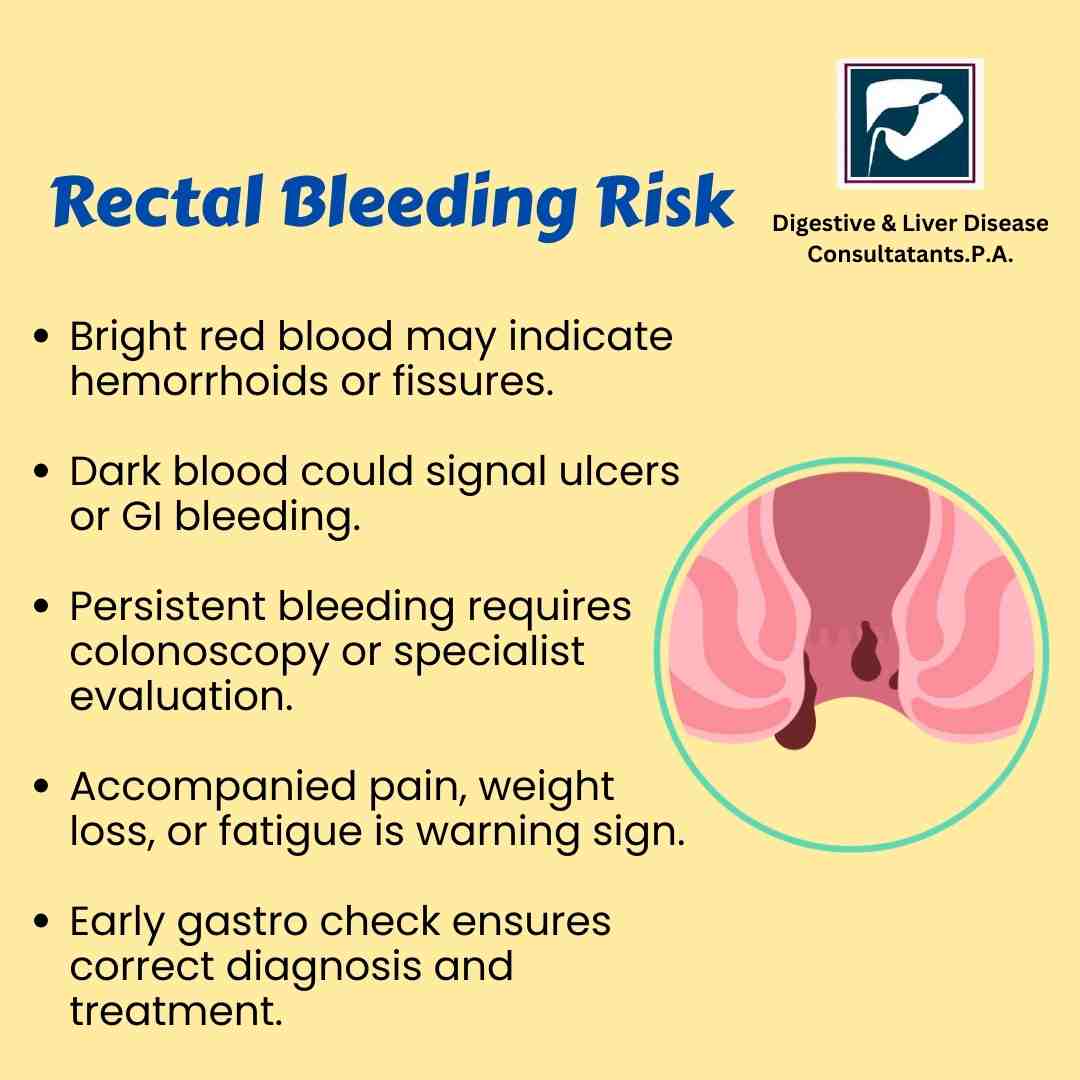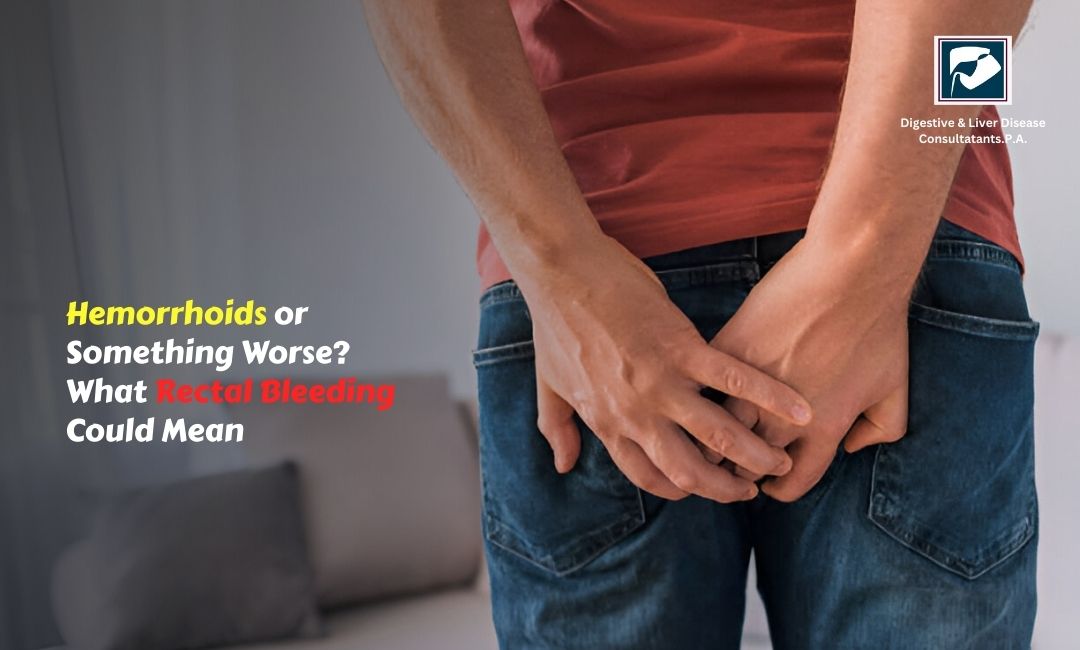Rectal bleeding is a symptom that many people hesitate to talk about, but it is important to pay attention to it. While in many cases, rectal bleeding is caused by something as common as hemorrhoids, it can sometimes be a sign of more serious digestive conditions. Understanding the causes, when to seek medical care, and the right treatment options can help protect your digestive health.
What Are Hemorrhoids?
Hemorrhoids are swollen veins in the lower rectum or anus. They can cause discomfort, itching, pain, and sometimes bleeding during bowel movements. Hemorrhoids are very common, especially in adults over 50, during pregnancy, or in individuals who experience chronic constipation or diarrhea.
Signs of Hemorrhoids Include:
- Bright red blood on toilet paper or in the toilet bowl
- Itching or irritation around the anus
- Pain or discomfort while sitting
- Swelling or a lump near the anus
While haemorrhoids are usually not dangerous, persistent or heavy bleeding should never be ignored.

Other Possible Causes of Rectal Bleeding
Not all rectal bleeding is caused by hemorrhoids. Other digestive conditions can also cause this symptom, including:
Anal Fissures
Small tears in the lining of the anus caused by passing large or hard stools. They can cause sharp pain and bleeding during bowel movements.
Diverticulosis and Diverticulitis
Small pouches in the colon wall, called diverticula, can sometimes bleed or become inflamed, causing abdominal pain and rectal bleeding.
Inflammatory Bowel Disease (IBD)
Conditions such as Crohn’s disease and ulcerative colitis cause inflammation of the digestive tract. Symptoms include rectal bleeding, diarrhea, abdominal pain, and fatigue.
Colorectal Polyps
Polyps are growths on the lining of the colon or rectum. Some polyps may become cancerous over time. Rectal bleeding can be an early warning sign.
Colorectal Cancer
Blood in the stool can be an early symptom of colorectal cancer, especially if accompanied by changes in bowel habits, unexplained weight loss, or abdominal pain. Early detection is key for effective treatment.
When to See a Doctor
It is essential to consult a healthcare professional if you notice any of the following:
- Rectal bleeding that persists or worsens
- Dark or black stools
- Blood mixed with mucus
- Changes in bowel habits such as diarrhea or constipation lasting more than a few days
- Unexplained weight loss or fatigue
Even if you suspect hemorrhoids, a proper evaluation can rule out more serious causes and provide peace of mind.
Diagnosis and Treatment Options
At Digestive & Liver Disease Consultants, P.A., we provide comprehensive evaluation and treatment for rectal bleeding. Our experts use advanced diagnostic tools to identify the exact cause of bleeding, including:
- Colonoscopy: Examines the entire colon to detect polyps, cancer, or inflammation
- Sigmoidoscopy: Evaluates the rectum and lower colon
- Imaging Tests: CT scans or MRI for detailed evaluation of digestive structures
Treatment depends on the underlying cause:
- Hemorrhoids may be treated with lifestyle changes, topical medications, or minimally invasive procedures.
- Anal fissures can heal with topical treatments, dietary adjustments, and proper hydration.
- Inflammatory bowel disease may require medication or targeted therapies.
- Polyps are usually removed during colonoscopy to prevent cancer.
- Colorectal cancer treatment may include surgery, chemotherapy, or radiation therapy, depending on the stage.
Why Choose Digestive & Liver Disease Consultants, P.A.?
Digestive & Liver Disease Consultants, P.A. is a leading provider of gastrointestinal care in the United States. Our team of board-certified gastroenterologists specializes in advanced diagnostics, minimally invasive procedures, and personalized treatment plans. We focus on providing compassionate care, patient education, and the latest medical technologies to help you maintain optimal digestive health.
By choosing our clinic, you benefit from:
- Experienced and highly trained specialists
- State-of-the-art diagnostic tools
- Comprehensive care for conditions from hemorrhoids to colorectal cancer
- Personalized treatment plans focused on your individual needs
Preventing Rectal Bleeding and Promoting Digestive Health
While some causes of rectal bleeding cannot be fully prevented, lifestyle changes can reduce the risk of hemorrhoids, anal fissures, and other digestive problems:
- Eat a high-fiber diet including fruits, vegetables, and whole grains
- Stay hydrated by drinking plenty of water
- Exercise regularly to promote healthy bowel movements
- Avoid straining during bowel movements
- Maintain a healthy weight
Conclusion
Rectal bleeding is a symptom that should never be ignored. While it is often caused by hemorrhoids, it can sometimes indicate more serious conditions like colorectal polyps, inflammatory bowel disease, or colorectal cancer. Early diagnosis and treatment are crucial for the best outcomes.
Schedule a consultation with a gastroenterology specialist at Digestive & Liver Disease Consultants, P.A., today if you are experiencing rectal bleeding or any digestive concerns. Early evaluation can make all the difference.






